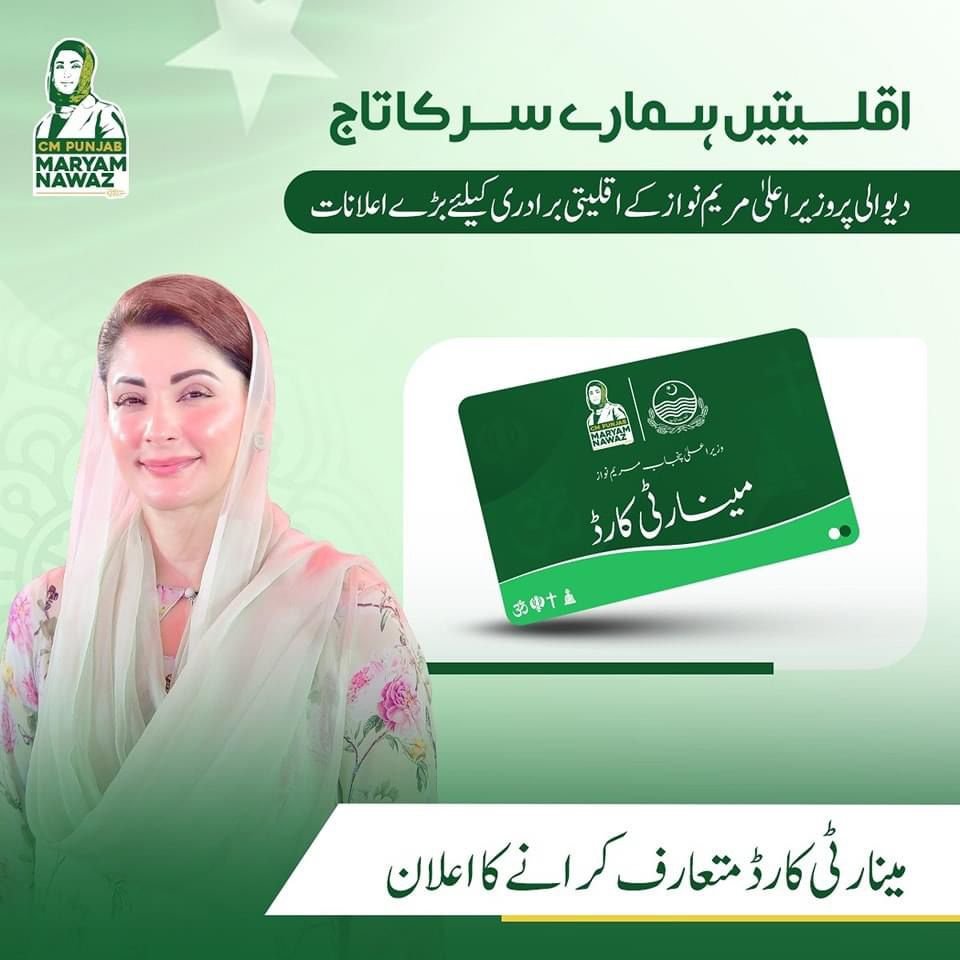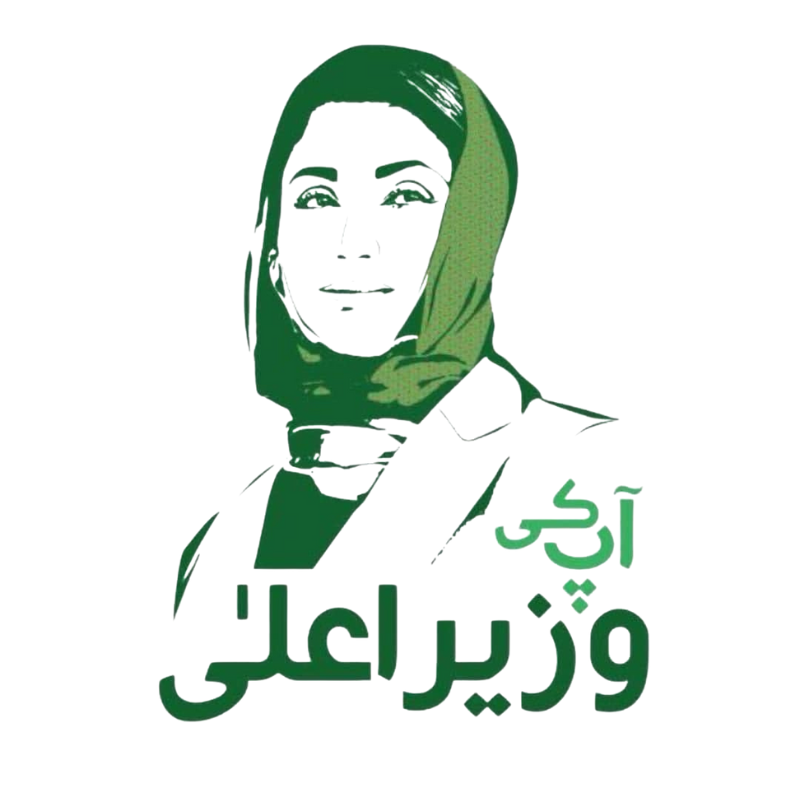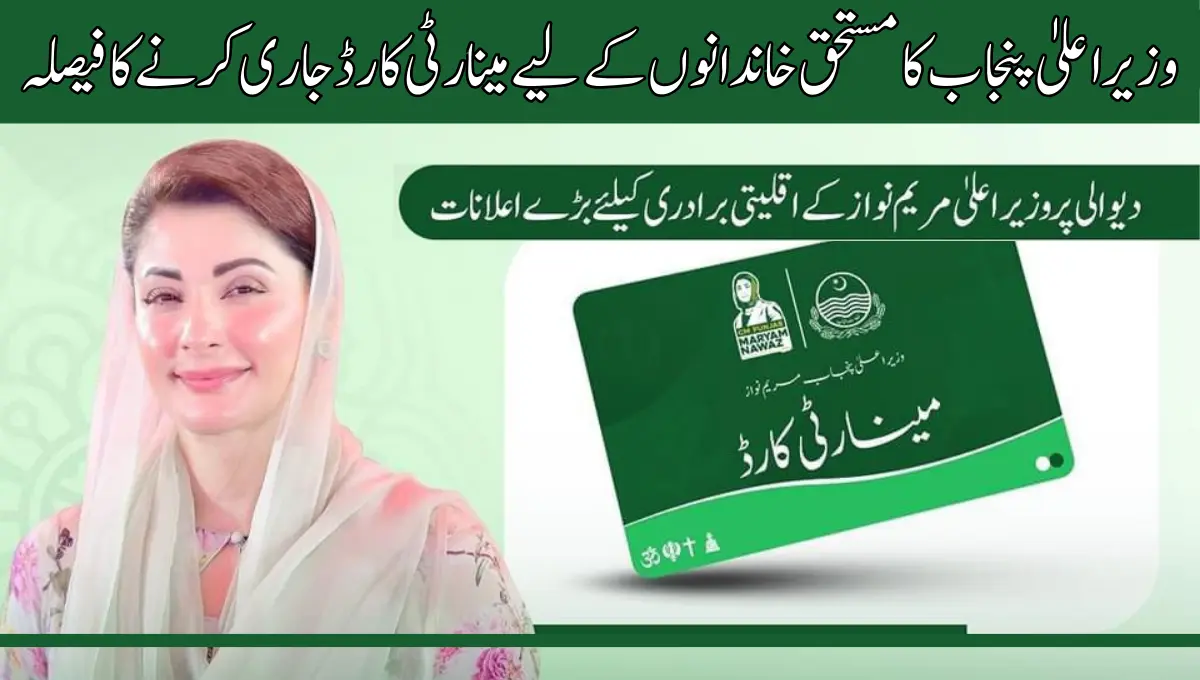In a groundbreaking move aimed at promoting inclusivity and uplifting underrepresented communities, the Punjab government, under the leadership of Chief Minister Maryam Nawaz, has introduced the “Minority Card.”
This welfare initiative is designed to provide essential support to religious and ethnic minority communities across the province, ensuring they have access to vital services and resources. The Minority Card is a step toward social equity, aimed at bridging gaps in access to healthcare, education, financial aid, and basic amenities, thereby fostering a more inclusive Punjab.
What is the Minority Card?
The Minority Card is a welfare card dedicated to supporting minority communities by offering a range of benefits tailored to address their specific needs. The program covers essential areas such as financial assistance, healthcare, education support, and subsidies on basic services. This initiative signifies the Punjab government’s commitment to supporting marginalized groups and empowering them to lead more secure and dignified lives.
Through this card, the government aims to remove barriers faced by minority communities, especially in rural and underserved areas, giving them equal opportunities to thrive and contribute to Punjab’s development.

Key Benefits of the Minority Card
The Minority Card provides multiple benefits that directly improve the lives of minority community members. Here’s a closer look at what this initiative offers:
- Financial Assistance: One of the main features of the Minority Card is direct financial aid to low-income families. This support helps individuals and families meet their daily needs, from food and shelter to other living expenses, fostering economic stability.
- Healthcare Access: The Minority Card offers subsidized or free healthcare services, allowing cardholders to access medical treatments, medications, and check-ups without financial strain. This is particularly beneficial for minority communities who may have limited access to quality healthcare facilities.
- Educational Support: Education is a pathway to empowerment. The Minority Card may provide scholarships, fee waivers, or financial support for educational supplies, helping young individuals in minority communities pursue their studies and unlock future opportunities.
- Subsidies on Essential Goods and Services: The card provides subsidies for essential items such as food, fuel, and utilities (like electricity and water). These subsidies help households manage their budgets more effectively and ease the cost of living for families.
- Legal Aid and Social Assistance: Recognizing that minority communities often face unique social and legal challenges, the Minority Card may include access to legal support, addressing issues like discrimination and property rights, and ensuring equal treatment under the law.
Objectives of the Minority Card Program
The Minority Card program is designed with a clear set of objectives that prioritize the well-being and empowerment of minority communities in Punjab:
- Promote Social Equity: The program strives to eliminate social and economic inequalities, ensuring that minority communities receive the support they need to lead dignified lives.
- Reduce Poverty: Many minority families face economic hardships, and the financial assistance provided through the Minority Card is intended to reduce poverty and improve living standards.
- Improve Access to Services: By facilitating access to healthcare, education, and other essential services, the Minority Card helps break down barriers that limit opportunities for minorities.
- Empowerment Through Education: Educational support enables young individuals from minority communities to pursue higher education, improve their skills, and contribute positively to society.
Expected Impact of the Minority Card
The introduction of the Minority Card is anticipated to bring positive changes to the lives of Punjab’s minority communities:
- Enhanced Quality of Life: With financial aid, healthcare support, and subsidies, the Minority Card will improve the living conditions of low-income families, contributing to their well-being and security.
- Economic Inclusion: By reducing financial barriers and encouraging economic participation, the Minority Card empowers individuals to seek better job opportunities and contribute to the provincial economy.
- Strengthened Social Unity: The initiative symbolizes the government’s commitment to a unified, inclusive society where minority communities are valued and respected.
FAQs
Q1: Who is eligible for the Minority Card?
The Minority Card is designed for members of recognized minority communities in Punjab, including religious and ethnic minorities. Eligibility criteria may include income level, family size, and residence in a designated area. The government will provide further details on eligibility soon.
Q2: What benefits does the Minority Card offer?
The card offers a range of benefits, including financial support, healthcare access, educational assistance, and subsidies on essential services. Additional support, such as legal and social assistance, may also be available for cardholders facing unique challenges.
Q3: How can one apply for the Minority Card?
The Punjab government is expected to announce a formal application process, which may include online registration, designated help centers, or local government offices. Interested individuals should follow official announcements to stay informed.
Q4: What documents are required for the application?
Typically, applicants will need to provide identification documents (such as a CNIC), proof of minority status, proof of income, proof of residence, and details about family members. The government will release a complete list of necessary documents during the application phase.
Q5: Is the Minority Card valid outside Punjab?
The Minority Card is a provincial initiative, so the benefits are likely limited to Punjab. However, in some cases, healthcare or educational support may be accessible in other regions, depending on program agreements.
Q6: How frequently will cardholders receive benefits?
The frequency of benefits (monthly, quarterly, or annually) will depend on the specific design of the program. Financial assistance might be provided every month, while other services could be accessed as needed.
Q7: Will the Minority Card help with employment opportunities?
Although the primary aim of the Minority Card is social support, improved access to education, healthcare, and financial stability can indirectly contribute to better job prospects. Empowered individuals are more likely to pursue employment and business opportunities, fostering economic independence.
Conclusion
The Punjab government’s Minority Card initiative is a vital step toward creating a more equitable and inclusive society. Through financial aid, healthcare access, educational support, and subsidies, the program benefits minority communities, helping them overcome socio-economic barriers and improving their quality of life. This initiative, led by Chief Minister Maryam Nawaz, highlights the government’s commitment to fostering a society where every citizen has access to basic services, equal opportunities, and support systems.
The Minority Card is more than just a welfare initiative; it symbolizes empowerment and social justice, aiming to elevate marginalized communities and build a stronger, more unified Punjab. As the program rolls out, it is expected to positively impact thousands of families, supporting them in achieving stability and a brighter future. This card marks a significant milestone in the government’s efforts
Also Read: Punjab Government’s Road Development Initiative for Smaller Regions

